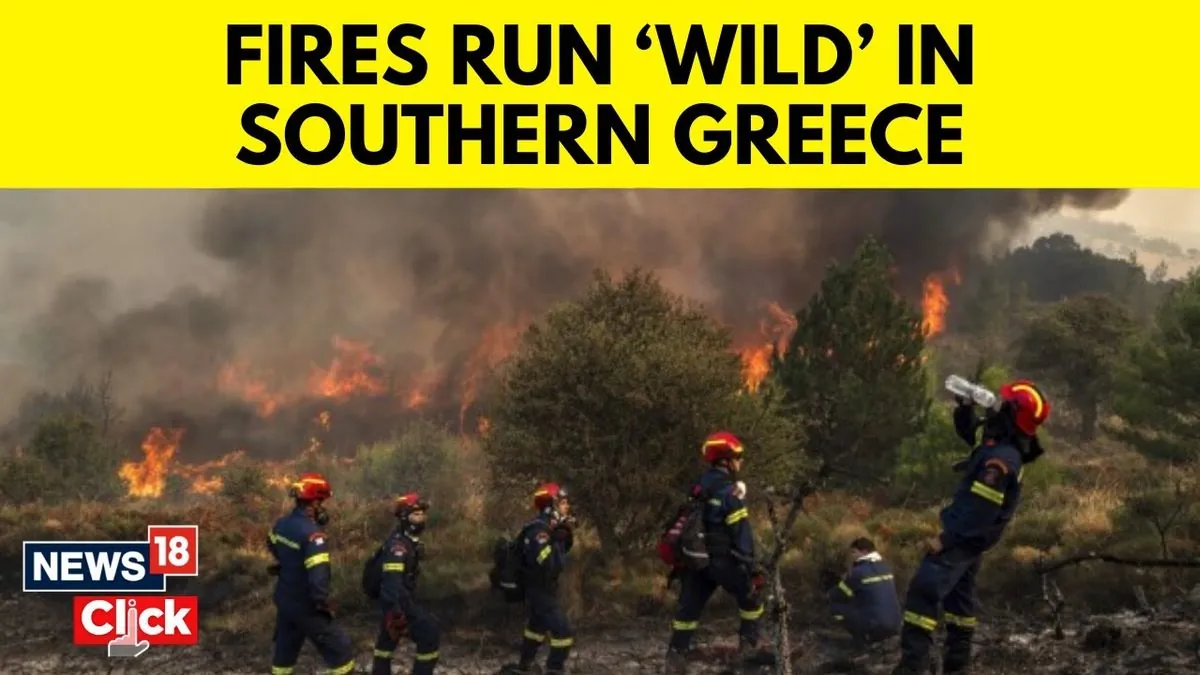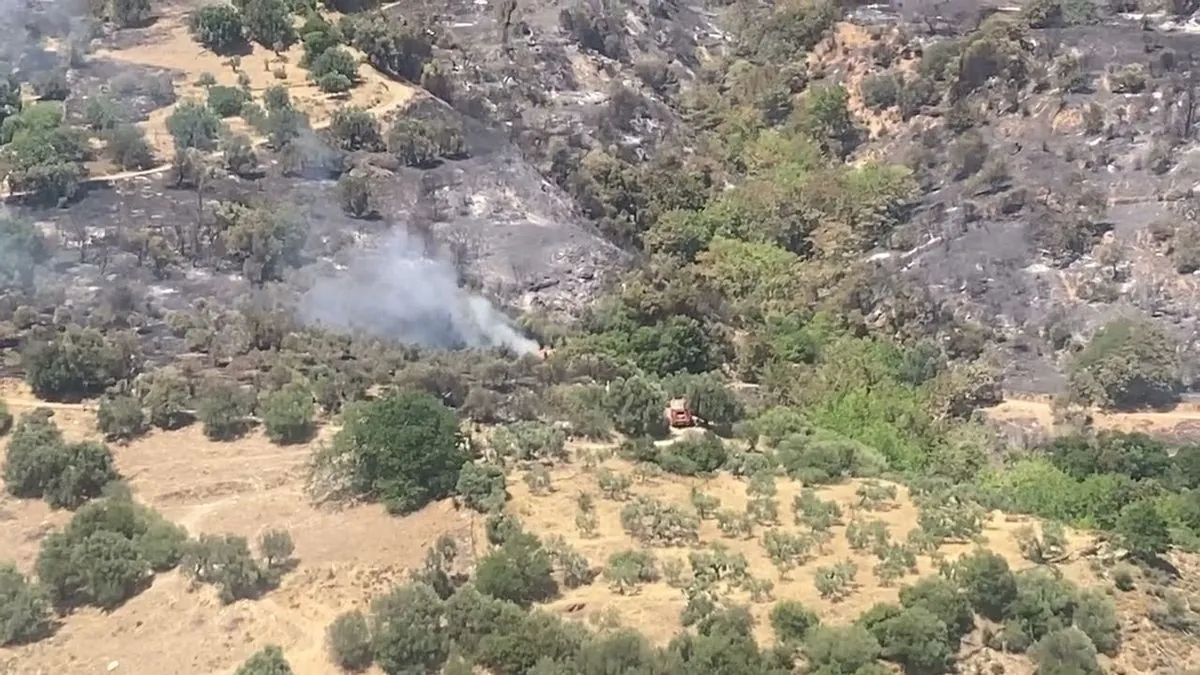Greek Firefighters Make Headway Against Deadly Peloponnese Blaze
Firefighters in Greece have made significant progress in containing a forest fire that has burned for days in the Peloponnese region. The blaze, which claimed two lives, affected over 6,500 hectares of land.

In a significant development, firefighters in Greece have made substantial progress in controlling a deadly forest fire that has been raging for four days in the southern part of the country. The blaze, which tragically claimed the lives of two local residents on Sunday, has been gradually receding, according to fire service reports.
The fire has affected approximately 6,500 hectares of rugged, mountainous terrain in the Corinthia area of the Peloponnese region. This region, known for its rich history dating back to ancient Greece, has been grappling with the challenges posed by the fire's spread through its complex topography.
A large-scale operation involving 570 firefighters, 160 fire trucks, and 11 aircraft has been deployed to combat the blaze. The international community has also stepped in to assist, with Italy and Croatia sending three aircraft as part of the European Union's Civil Protection Mechanism. This collaborative effort underscores the EU's commitment to coordinating assistance during disasters, a system that has become increasingly vital as climate change exacerbates natural calamities.

As a precautionary measure, authorities ordered the evacuation of more than half a dozen villages between Sunday and Tuesday. While firefighters successfully kept the flames at bay from these settlements, several outlying buildings reportedly sustained damage. Notably, a historic church in the area was gutted, highlighting the fire's impact on both the natural landscape and cultural heritage.
Greece, like other southern European countries, faces the perennial challenge of forest fires, particularly during the summer months. However, this year has seen an alarming increase in fire incidents. Over 4,500 blazes have been recorded so far, many occurring outside the typical three-month summer period when fires are usually expected.
This surge in fire incidents can be attributed to a combination of factors, including climate change-related drought, high spring temperatures, and summer heatwaves. Greece's Mediterranean climate, characterized by mild, wet winters and hot, dry summers, creates conditions conducive to fire spread. The country's forest coverage has already decreased significantly over the past century due to fires and development, making each new blaze a critical threat to the remaining wooded areas.
While the exact cause of the Corinthia fire remains unclear, officials suspect negligence may have played a role. This incident serves as a stark reminder of the need for increased vigilance and stricter fire prevention measures, which Greece has been implementing in response to recent disasters.
The Greek fire service, employing about 12,000 firefighters and 3,000 seasonal firefighters, faces immense challenges in protecting the country's diverse landscape. Greece's topography, with its numerous mountains and islands, often complicates firefighting efforts, making the use of waterbombing planes crucial in combating fires in hard-to-reach areas.
As Greece continues to battle this and other fires, the incident underscores the broader implications of climate change for the region. Experts predict that the risk of forest fires in Greece will increase in the coming decades, necessitating enhanced disaster management strategies and international cooperation.
The country has been working on improving its early warning systems for natural disasters, a critical step given the traumatic memory of the 2018 fire season, which saw 102 people lose their lives in the Mati fire. However, ongoing economic challenges have strained resources for disaster management, highlighting the complex interplay between environmental threats and socio-economic factors.
As firefighters continue their efforts to fully extinguish the Corinthia blaze, the incident serves as a poignant reminder of the ongoing struggle against forest fires in Greece and the broader Mediterranean region. It underscores the urgent need for comprehensive strategies to address climate change and enhance resilience against natural disasters.


































